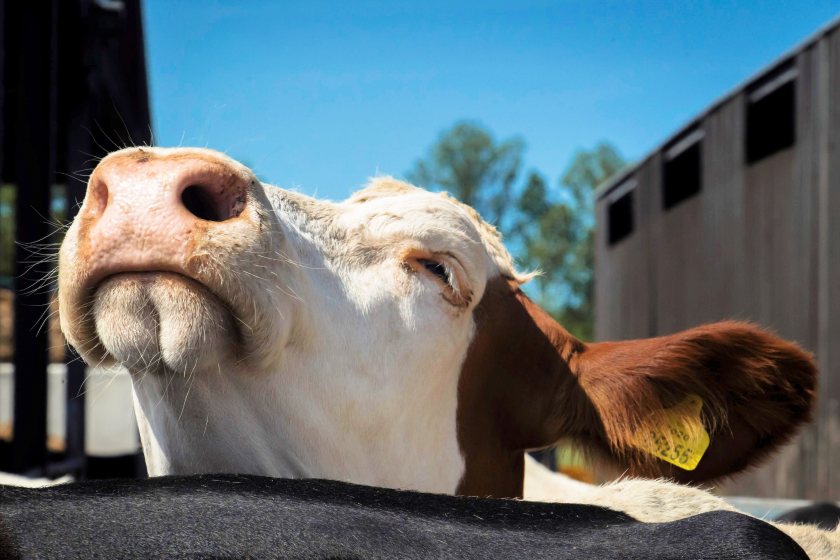
Tesco has announced it will trial a methane-reducing feed supplement for dairy cows as part of an initiative to cut its carbon footprint.
The retailer will partner with Cheshire-based Grosvenor Farms, one of its key UK dairy farms, to trial the feed supplement in 400 cows for four months.
The innovative ingredient Bovaer, supplied by dsm-firmenich, which has been shown to reduce methane emissions by up to 30%, will be trialled.
If implemented across the whole of Grosvenor Farms, Tesco said it could lead to an overall reduction in farm greenhouse gas emissions of up to 12%.
The supplement works by suppressing the enzymes responsible for producing methane, leading to a reduction in the amount produced as the cow digests its food.
As a result of the enhanced feed, the carbon footprint of each cow is projected to reduce by about 1.3 tonnes CO2e annually, according to Tesco.
If the four-month trial is successful, the supermarket chain hopes to scale up the use of Bovae.
Natalie Smith, head of sustainable agriculture at Tesco said: "I’m delighted we’re going to be partnering with Grosvenor Farms on a project that could have such a significant effect on emissions reduction in our supply chain.
“It’s only by working alongside our suppliers and farmers that we’ll achieve our shared net zero ambitions, while continuing to provide our customers with quality British produce, including 100% British milk.”
Mark Roach, managing director at Grosvenor Farms, said the farm already had one of the lowest carbon footprints for milk production in the UK.
"We are very pleased to be working with our partner Tesco to trial innovative technologies like Bovaer in order to develop a lower-carbon milk supply chain and in doing so support our ambition to be a carbon net zero milk producer by 2030.”
It comes after Morrisons recently announced it will trial a methane abating livestock feed made from seaweed.
The retailer is collaborating with Sea Forest to trial SeaFeed, which has compounds occur naturally in a native Australian seaweed, inhibit the bacteria that produce methane in the complex stomachs of cows, sheep and goats.
It is hoped the product could help Morrisons fast track the introduction of lower carbon beef products, which could be rolled out by 2026.
